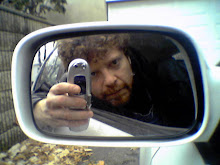
The Yardbirds—first stop for three of Rock and Roll’s greatest guitar heroes—mixed blues and psychedelia into a unique soup that produced such classics as “For Your Love” and “Heart Full of Soul.” While noted for launching the careers of Eric Clapton, Jeff Beck and Jimmy Page, it was Paul Samwell-Smith (bass), Keith Relf (singer/harmonica), Chris Dreja (rhythm guitar) and Jim McCarty (drums) who maintained the core. I plan to see Chris and Jim perform, along with new Yardbirds band members, on Wed., September 7, at BB Kings' in NY City (the Good Rats are opening). You can also catch the Yardbirds in a lot of other places through October.
Yesterday I caught up with Jim McCarty—far and away one of the most influential drummers of his time.
Meth: Is drumming work? It looks like work.
McCarty: (Laughs) I never really thought of it as work, Cliff. It’s not really hard work is it? The hard work is traveling around (laughs again). But I did once see an article about drummers having to be really fit. There was an experiment in England and they said Blondie’s drummer was as fit as a footballer. So I guess it’s work but being in a rhythm sorts of works itself.

Meth: You’ve been a Yardbird for what, 45 years? Did you think that was possible?
McCarty: I didn’t actually. At one point I worked for a stock broker in London and I was playing drums at night and on weekends. After a few weeks it was very tiring and I didn’t think it would last. I went to my boss and said, “I need to take a break. Can you keep the job open for me when the band folds up?” But it lasted a bit longer… I was going to become an actuary at the time. I was obviously destined not to do that but I always had a mathematical brain. It also helped with the songwriting, I think.
Meth: There was a bit of a break in there. How did you reform the group?
McCarty: We were inducted into the Hall of Fame in 1992 but we didn’t get it together again until ‘95. I was playing in a blues band and we sort of built a place up. Jeff [Beck] and Paul [Samwell-Smith] would come and see the band but they didn’t sit in. Then Chris and I were approached by an agent and there was interest in putting the band back together. Jeff hasn’t played with us, nor has Jimmy [Page], but they’ve shown up at shows and played air guitar.
Meth: Air guitar. That's not work.
McCarty: Yes. [Laughs]
Meth: While you played musical guitar heroes, the core of the Yardbirds seemed to stay close knit. Who were you closest with?
McCarty: I suppose Keith and I were very close back then. Me and Keith and Chris were the steady members. But there was tension because it was very hectic having to work the whole time. We weren’t making any money. Even when we were signed, the LPs weren’t selling well and royalties were poor—all the money was on the road so were relentlessly working and that created tension. It was clear that Eric and Jeff were destined to be their own bosses—they were people who found it difficult to be in a band.
Meth: But there was some sense of fraternity wasn’t there? You were too young not to have that idealized dynamic.
McCarty: Well, we would go to our manager and have meetings. I remember that Eric was very unhappy about the way the band was going and didn’t like the idea of doing “For Your Love,” which the rest of us wanted to do. He thought that was selling out. We loved it but he only wanted to do blues. We tried to do bluesly singles like “Good Morning Little School Girl” but they weren’t commercial enough to be big hits and to get anywhere you had to have a single. Now the music industry has gone full circle. The LP market is dead again and it’s all about being on the road, but back then it was all about singles.
Meth: You contributed to the writing on some of those singles.
McCarty: Yes, most of the songs were team efforts. “Shapes of Things to Come” came from Keith and Paul and myself.
Meth: Well, while we're on shapes of things to come, are you disappointed with where music has gone? The death of rock culture—and for that matter, the virtual death of everything else?

McCarty: I tend to think positively about where we’re going and I try to reflect that in my songwriting. There’s a change coming but the change is for the good.
Meth: What do you see in evidence of that?
McCarty: I guess ecological things, especially in Europe. People trying to get by without using un-renewable fuels… I sort of do see a better world coming, a growing awareness and growing consciousness of other people. I think it will be alright.
(c) 2011 Clifford Meth












No comments:
Post a Comment